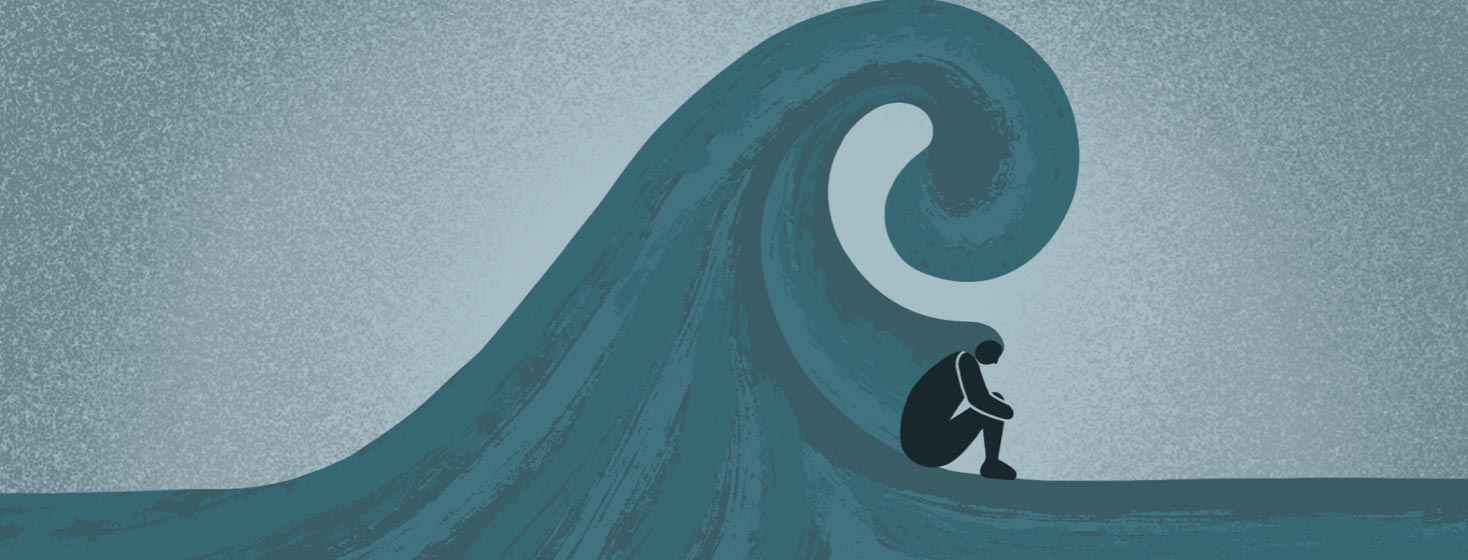How Bipolar Made My Grief More Complicated
"I just want it to be over," I told my friend Brittany. The tears I was fighting so hard to keep inside kept streaming down my face.
"Scott," she said, putting a hand on my shoulder. "Grief isn't a to-do item you can just cross off your list. It takes time."
Living with bipolar 1 disorder, time is rarely feels like my friend.
Bipolar disorder and grief
Bipolar disorder loves to make everything just a bit more challenging. That's true in relationships, job performance, and sometimes even waking up and getting dressed in the morning. This constant impact on your life is a reality you have to consider every day when living with mental illness.
One area you might not think about being more complicated is grief. Here are three ways bipolar caused me problems while I was grieving.
Experiencing a loss
I lost my best friend, Lizzy, in 2007. Minutes earlier, we were talking on the phone, discussing our plans for dinner later that night. We both hung up to return to our jobs. A few minutes later, she left the house she was cleaning, and turning onto a highway, a dump truck hit her head on.
My world forever changed in an instant.
Anxiety came first
In the weeks after, I felt like I couldn't breathe. More than just missing my friend, I had intense anxiety, so severe it felt impossible to leave my house or drive a car. The anxiety lasted for months and seemed impervious to the dozen medications my doctor threw at it.
In the end, it took a lot of talk therapy, journaling, and sharing my story online before I put most of that anxiety behind me. Even today, though, my hands start sweating and my pulse quickens every time I have to make a left turn. I have to think at least part of the remaining anxiety is tied to bipolar disorder.
Then there's the depression.
Depression plus grief
Bipolar depression is soul crushing on a good day, but when you add grief on top of it, it feels like you're trying to swim up from the bottom of the ocean. The trouble with bipolar depression is you may slip into such darkness that you feel like the only way out is to end everything.
Choosing life is always the right answer, but it's tough to keep that in mind when depression has you by the throat.
Depths of a depressive episode
When Lizzy died, it took roughly 4 months for me to hit the darkness of depression. I withdrew from my family and friends and spent months on the sofa binge-watching DVDs and eating junk food. Nothing mattered.
When depression gets worse, I know my best resource is my doctor, but I didn't do what I should. I waited too long to tell my physician how much I was suffering, but when I did, we worked together to make things better.
Bipolar wasn't done with me, though. It had one more way to add trials to my life: mania.
Mania and grief
My dad died at the end of May 2024. I didn't recognize the mania after Lizzy died, but it's impossible to ignore since my dad passed. After I closed his eyes for the last time, I went outside to call hospice and my siblings. Then I cried, maybe all of 10 minutes. In a flash, my mind switched over to work mode and all grieving stopped.
For the rest of the night and the weeks to follow, I had endless energy. I handled all the final tasks you have to do when you lose someone and got busy with my creative pursuits. I even finished a book I've been working on for 3 years.
Taking note of my symptoms
Mania brings its own dangers and is usually followed by its evil twin, depression. After Lizzy, I ran for too long without admitting I was manic, so the price I paid with depression was much higher.
Since my dad's death, I keep a daily pulse on my stability. I'm tracking my emotions, eating habits, and the hours spent working. I place time limits on every task and schedule rest like I would any other appointment.
The mindful attention seems to have kept me from full-blown mania.
Knowing when to reach out to my care team
I know that to keep myself in check, I must monitor my symptoms, medications, nutrition, and sleep patterns. If I notice anything falling off balance, no matter how great I feel, I take it seriously and make changes.
When I notice substantial changes or when a friend voices concern, then it's time for me to reach out to my mental health care team.
Grief is hard
Grief is hard for everyone, but especially so if you have bipolar disorder. Since I already struggle with anxiety, depression, and mania, losing someone I loved caused my symptoms to intensify.
I know it's vital to monitor how I’m doing, check in with my support network, and keep my primary care physician updated.
Managing bipolar symptoms after loss
Bipolar disorder makes life more challenging, and that includes when you lose a loved one. The way you care for your mental health every day will help keep grief from taking over your life.
Stick to your good habits, and you'll make it through the painful time.
